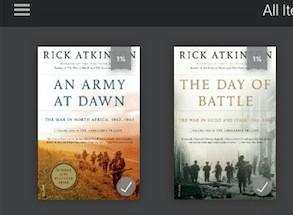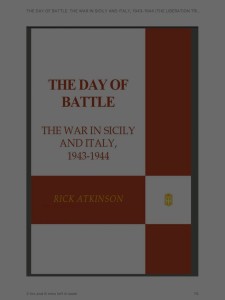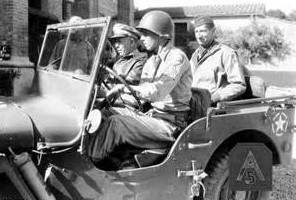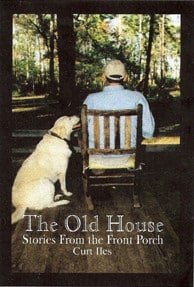Corporal Howard Vidrine
When I came to work at Dry Creek as a thirteen-year-old, one of the first people I met was Howard Vidrine. He served as the camp night watchman during my early years at camp. “Bro. Vidrine,” as we called him, lived in the Evangeline Parish town of Reddell, which is next door to the unique village of Mamou, located in the deepest heart of Louisiana’s Cajun country.
Forty years after I first met him at camp, Howard Vidrine is still a part of our camp family. In fact at the time of this writing, he is staying with us in his own personal cabin at camp.
The first thing I noticed about Howard Vidrine was his rich Cajun brogue. I love all Acadian accents, but there is something so different about the unique accent of Evangeline Parish residents. It has a character all of its own. I’ve always said if I was walking down the street in New York City and heard someone from Ville Platte or Mamou speaking, I’d recognize where they were from.
Bro. Vidrine is a bachelor, at least as I write this. Being eighty-one years old (Don’t dare ask him his age!) and pretty set in his ways, I doubt he’ll find a wife at this point, but you never know. Throughout the years he has been a fixture at Dry Creek. A few years ago he moved into one of our small cabins as a special guest.
We never know when he is coming or going. He just shows up and that is always fine with us. He serves a very important role at Dry Creek Camp. He is the surrogate grandpa for several generations of campers and staffers. I guess that would be the best way I could describe the role he has played in my life.
Bro. Vidrine is an ordained Baptist minister. Several times he preached for us at our local church. I’ll never forget the last time when he preached as to why he wore a big bow tie.
I’ve found that anywhere I traveled in this part of Louisiana, he is well known. Once several of us went to check on him at his Evangeline Parish home, but failing to find him there we found him at the local corner grocery. He told us this is where he came everyday to eat. It was neat how the young waitresses hovered over him as if they were serving royalty.
As I write this, I’m sitting by his hospital bed in DeRidder. He has had kidney-stone surgery and is recuperating for a couple of days. During the last few weeks, our camp staff has taken care of him. Frank and Janet Bogard and the rest of our staff have always been so good to him and treated him as a grandpa to our staff.

During these last few weeks, I’ve had Bro. Howard tell me again about his wartime experiences during World War II. The men, who fought to keep our freedom during this most challenging war of all, are slowly but surely passing from the scene. It is important to tell their story for posterity. Here is his story:
Howard Vidrine volunteered for the Army in October 1942. He went to boot camp at Fort Benning, Georgia. He then took part in the Louisiana maneuvers held in Central Louisiana which were led by Generals Eisenhower and Patton.
Then he boarded a transport ship for the fourteen-day trip to Europe, his first trip very far from Evangeline Parish. They landed first in England where his division drilled for three months. Bro. Howard said, “It rained every day we were in England.”
Next, his unit went to North Africa to join the war in January 1943. His battalion, the 894th Tank Destroyers, joined the battle at Kasserine Pass. Corporal Howard Vidrine was in a reconnaissance platoon. Their job was to scout out and locate Rommel’s tanks. Crawling along there in the Saharan desert sand, he saw his first German tank. It was the first of many he’d see in the coming months.
This famous fight was a tank and plane battle between the Allied and Axis forces. It was during this time that the Mamou kid first worked alongside British soldiers. His main recollection was how they had their teatime daily at ten o’clock regardless of the conditions. He told me, “They really talked funny.” I couldn’t help but chuckle at him commenting on how they sounded.
His division pulled back after this battle. Bro. Howard told me a disturbing story of an incident that occurred during a later skirmish. The North African campaign was winding down as the Germans retreated through Italy. Howard was driving a jeep when he picked up an Italian civilian who was visiting his family in Africa. The Italian was so excited that his home country was being liberated. They continued toward town where they stopped and picked up an American correspondent. Upon nearing town, they encountered German artillery fire and turned back. At this point, the correspondent pulled his pistol and shot the Italian dead. Bro. Howard grimaced as he shared this story. He asked the American why he shot this man. The reply was, “Well, he’s the enemy, and he might have shot us.” Over fifty years later, the pain of this episode could still be heard in his voice.

Next they boarded transports for the trip across the Mediterranean Sea to Italy. Landing at Naples they began their march northward. Upon reaching Anzio, Italy, they found no enemy. However, within a few weeks, German troops began showing up with troops, planes, and artillery and the big battle began. Bro. Howard said he spent most of the battle in foxholes, at outposts, or on patrol.
He related another story that occurred during this battle: Bro. Howard and a lieutenant were on patrol. They went into a two-story house to check for Germans. They found no one in the house. The Germans were shelling the house with artillery. Therefore, they next went to a nearby cave where they spent the night with a group of civilians.
The following morning they went to a nearby field and hid in a haystack. Then they moved to a bomb crater and spent the day watching for German troop movement. By radio, they sent information telling of the Germans’ location. The Allies were bombing with land artillery and guns from the ships in the harbor. The shells “fell like rain” as the barrage moved from the north to the south.
Soon, the German troops and tanks began moving right toward their foxhole. Over two hundred troops accompanied by a dozen tanks began approaching his position. Bro. Howard related as to how he had decided to play dead if they came upon his hiding place. When the Germans were within about one hundred and fifty yards, they stopped and pulled back due to the intense Allied shelling.
He also related the following story to me: While they were engaged in the battle at Anzio, mortar shelling went on all the time. One day as he left his foxhole during a lull, three fellow soldiers hollered at him to come over and join their card game. He replied that he couldn’t because he had something to do. Within minutes, a shell landed in the foxhole, killing all three men.
After the battle of Anzio was won, the Fifth army continued northward. During this time, Corporal Vidrine had his one and only meeting with his commander, three-star General Mark Clark. As Vidrine was directing traffic at an intercession, Gen. Clark drove up, jumped out of his jeep, and asked for a light for his cigar. Corporal Howard Vidrine from Reddell, Louisiana, lit the cigar of famed General Mark Clark at this muddy Italian intercession.

The army entered Rome after its liberation. Bro. Howard commented on the friendliness of the Italian people. During this time he visited the Vatican and saw the Pope give his blessings to a large crowd at St. Peter’s Basilica.
As they worked their way north, they came to the famous town of Pisa. Bro. Howard, when asked about the famous leaning tower, dryly commented, “Yeah, I saw it. It looked just like an old building about to fall down. It didn’t impress me too much.”
It was in Pisa that the war ended for Corporal Howard Vidrine. He was one of three men going to relieve two observers in a house. While approaching the house, they were hit by mortar fire. One man lost both legs, the other man had superficial wounds, and Bro. Howard received shrapnel in his shoulder and hand.
From there he spent a long time in military hospitals in Europe recovering from his wounds. He then began his journey back to Louisiana, never to venture far from home again.
To end this story, I’d like to share something that left a great impression on me. During November 1998, just after Veteran’s Day, a delegation from Fort Polk visited our camp. They were looking at our facility for future staff retreats. They were led by Colonel Jason Kiamaya, commander of one of the regiments at Ft. Polk, our nearby Army base. Accompanying Colonel Kiamaya was Sergeant Major Clarence Harmonson, and two other men—the post chaplain and an enlisted driver. I took them on a tour of the camp and we had a good time walking and visiting.
As noon approached, we went to the dining hall for lunch. As we entered, I saw Bro. Howard sitting at a window looking out across the campgrounds. Bathed in the bright sunlight coming through the window, he looked even older and frailer than his eighty-plus years suggested. Just looking at him in his simple clothes and weathered, wrinkled skin, there was nothing really physically impressive about Bro. Howard.
I pointed Bro. Howard out to Colonel Kiamaya and said, “See that man—His name is Corporal Howard Vidrine, a World War II veteran. He served with Gen. Mark Clark’s Fifth Army fighting German tanks across North Africa and Italy. He was on the front lines of all of the major battles of that campaign. He received the Purple Heart after being wounded at Pisa, Italy.”
As we neared the serving area, I called Bro. Howard over. He slowly shuffled over, dragging his feet as his house shoes made a scuffing sound. He hadn’t shaved in several days and his clothes just hung on his skeleton-like frail body.
However, I was proud to introduce him to this group. Col. Kiamaya stepped forward, snapped off a salute, and said, “Sir, in respect and honor for you and your service to our country, I’d like you to go first in line.
Bro. Howard, being the humble (and stubborn) man he is, declined to go. However the Colonel, a man used to giving commands, would not relent until Bro. Howard went first. Therefore, with great deference, Colonel Kiamaya led Corporal Vidrine through the serving line first. I’ll never forget the sight of the highly decorated officer walking behind Corporal Howard Vidrine.
We all sat together for the meal. The soldiers with their sharp uniforms, shiny medals, and insignia sat around Bro. Howard. It was with sincere appreciation how they listened and paid respect to this old man who had so faithfully served his country. The conversation around the table was special and made me, as a non-veteran, feel like an outsider. The camaraderie among these military men was both warm and real.
As I walked away, I glanced back at the green and khaki uniforms sitting in a circle of honor around an old World War II vet, a member of what is often called “The Greatest Generation.” Here stood one living example of the men who rose up from the woods, plains, mountains, towns, and cities to join together to defend our American freedom during a pivotal time in history. The look on Bro. Howard’s face did not look like a corporal in the midst of superiors. It was the look of a man among other warrior-soldiers, all united in their commitment to our wonderful country.
Epilogue: As I am putting the finishing touches on this story, Colonel, now General, Jason Kiamaya has returned to Fort Polk as the commanding general of the entire base.
Sergeant Major Clarence Harmonson recently retired as the highest ranking enlisted man at Fort Polk.
Our special friend, Bro. Howard Vidrine, passed away at the Alexandria Veteran’s Hospital in October 2000. He is buried in the very area of Evangeline Parish where he lived all of his life, other than his war years.
We miss him at Dry Creek Camp, but will always cherish his life and memory.

Contact Us!
We love to hear from readers at CreekBank Stories!
For Snail Mail, mail to:Creekbank Stories
PO Box 6060
Alexandria, LA 71307
 Creekbank Stories Curt Iles, Storyteller
Creekbank Stories Curt Iles, Storyteller
